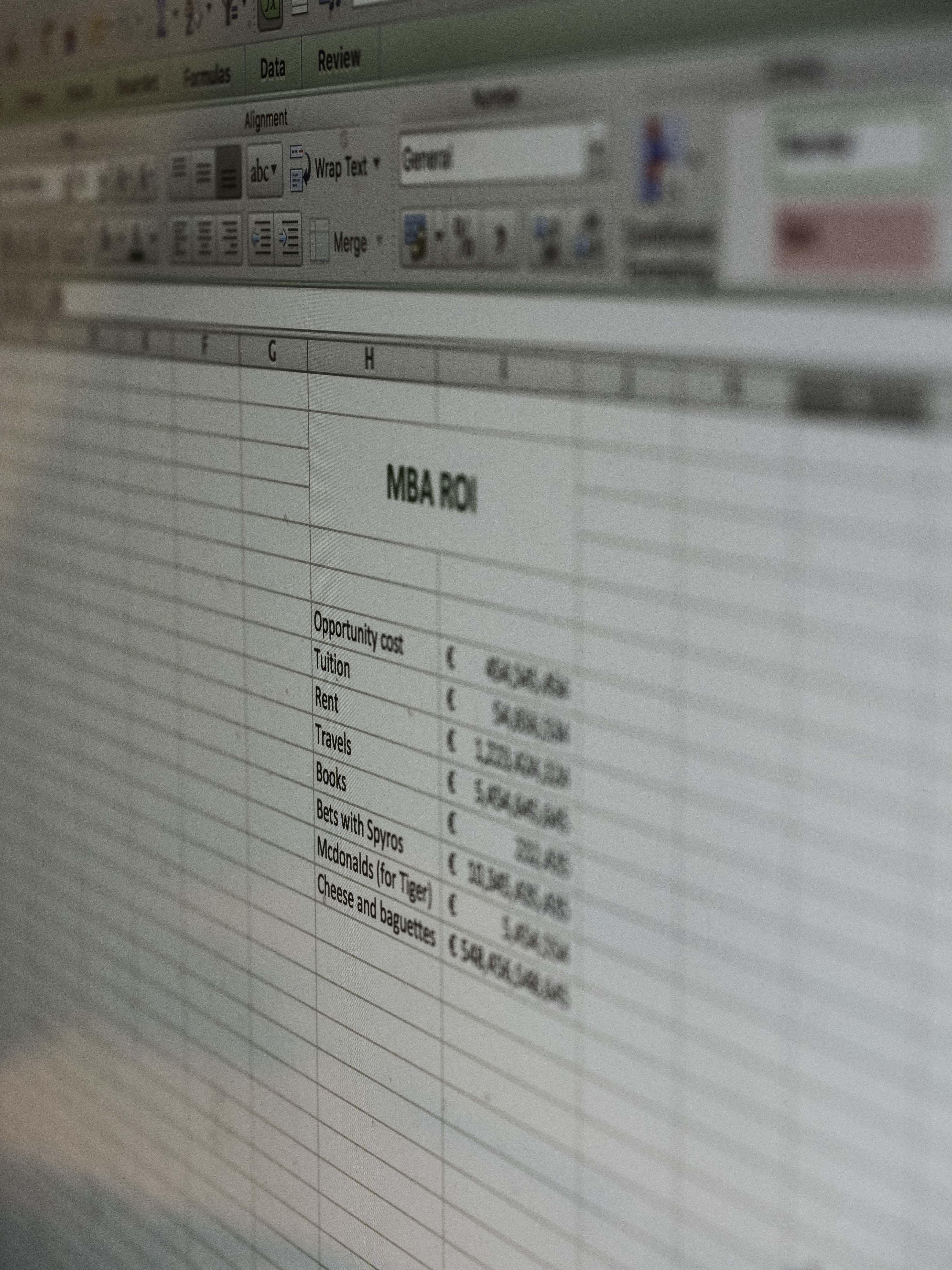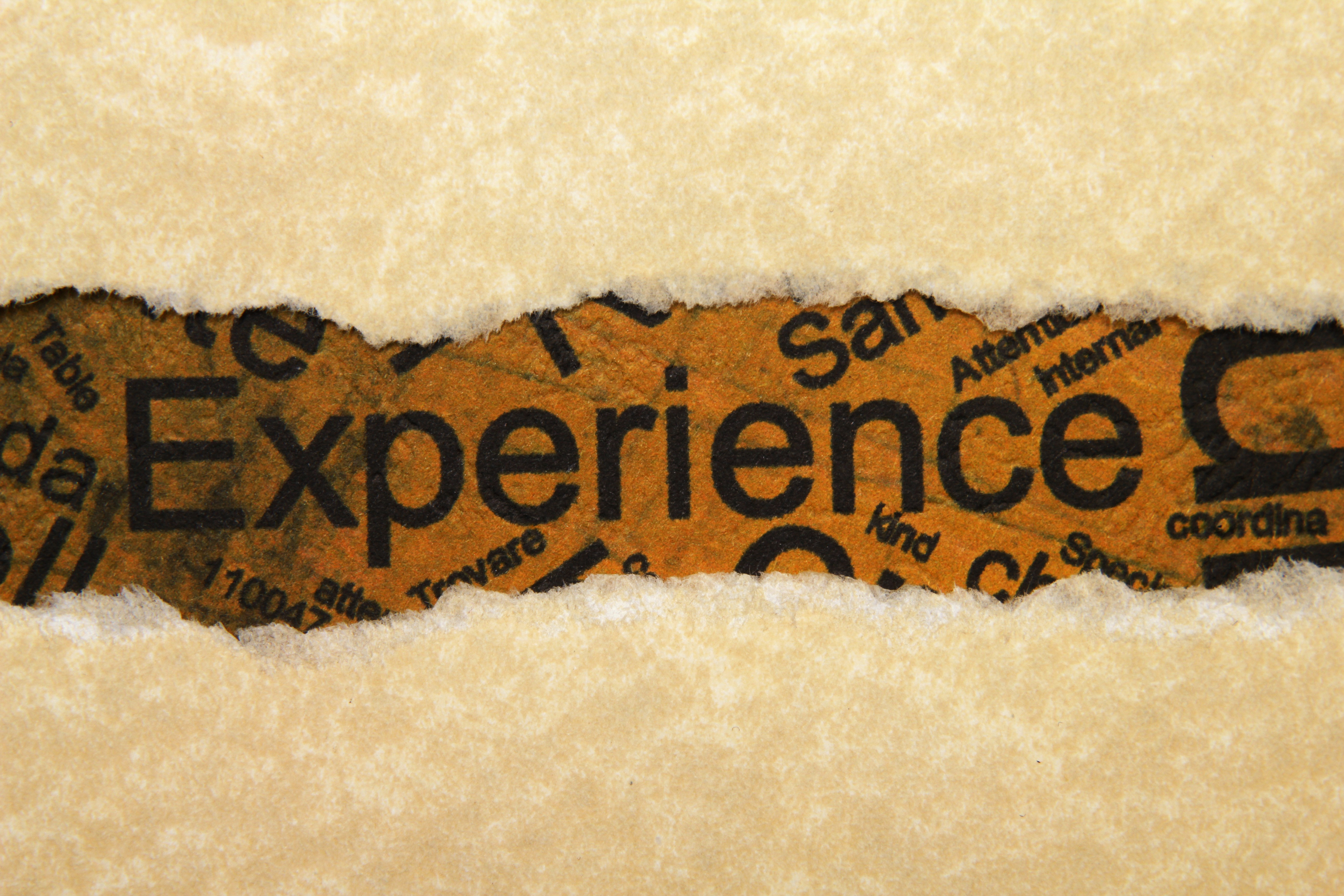
Being Human: A Behavioral Guide to the MBA Experience
Several weeks ago Richard Thaler won the Nobel memorial prize in Economics for his contributions to behavioural economics". Fifteen years earlier, Daniel Kahneman, professor of psychology and public affairs, once called the “Beyoncé of behavioural sciences”, won the same prize for his efforts in the same field. However the significance of the recent event is that Richard is the first economist to win the prize in the revolutionary field that challenges core economic principles that had always been taken for granted. For years, mainstream economists dismissed behavioural scientists, but that has been slowly changing.
The likes of Danny Kahneman, Amos Tversky and Richard Thaler – and many others - dedicated much of their careers to analyzing the biases and imperfection that shape our decision making process. They changed the way we think about thinking. In my opinion, behavioural economics’ main achievement is that it challenged the notion that economics agents (in other words, people) act rationally to maximise their utility, a concept that shaped and dominated classical economic theory for decades.
When asked what the most important aspect of his research was. Richard Thaler replied, ironically, that it was the recognition that economic agents are human, and that economic models have to incorporate that.
----------------------------------------
“One of the things MBAs learn in business school is to think like an Econ, but they also forget what it is like to think like a human. This is another example of Kahneman’s notion of theory-induced blindness.”
Richard Thaler
----------------------------------------
In this, very long, blog post I want to share a few thoughts that I have around my MBA experience so far. There are many stigmas and myths that I have been hearing for years. There is a lot of pressure on MBAs to make the “right” decision and to have the best of time. After going through months of preparation, tests, informational discussions and interviews, essay and application writing, formal interviews and three months of the degree itself, my best advice is that it’s ok, and healthy, to be human.
----------------------------------------
Bounded rationality
Exactly one year ago, I was explaining to a childhood friend that I had decided to leave work to go back to school for my MBA. He was puzzled on why I wanted to go back to school for a fourth time. He, however, said that he trusted that I thought long and hard very rationally about it and had done the math, like I typically do.
The truth was that I really hadn’t and it was so unlike me. I have known for a long time, seven years to be precise, that I wanted to pursue an MBA but I was not able to fully rationalise my decision like I typically would. Having already earned three degrees in business, I had strong core knowledge in business subjects- some more than others, but enough to do well in a consulting career that I thoroughly enjoyed, however I felt that I could improve in a few areas and sharpen my leadership and interpersonal skills. I knew that I wasn’t where I wanted to be and needed another push forward.
The more I read about business and strategy, the more I believed in the benefits of spending one additional, intense, year challenging what I have learned so far. I needed inspiration from the wonderful people that I would meet in school. Despite my bank account suggesting otherwise, I have never regretted my decisions to go back to school. You get to spend time with brilliant people from all over the world. How could that be anything but positive?
To my friend’s surprise, I didn’t have a financial model calculating the Return-on-investment, nor was I interested in creating one. I think that there’s an intense, and perhaps self-imposed, pressure on MBAs to ‘rationalize’ the decision as much as possible. Yes, we have to pay A LOT of money and leave the job market for some time, but a big part of the pressure comes from this idea that MBAs are not necessarily human. That they have superior decision-making skills, especially when it comes to investing time and money. We know that is not true. MBAs are just as rational, or irrational, as anyone else. We all make systematic errors and are easily “nudged” towards ideas. I, perhaps, was suffering from confirmation bias when I was rationalizing my MBA decision. But I was convinced the MBA would be very beneficial for me. I was set and invested.
Yes, I am doing a MBA at a “top school”. No, I don’t necessarily want to save the world or become a billionaire.
There is a lot of stigma and strong beliefs (both positive and negative) about MBAs out there. There seems to be four different mainstream opinions on the MBA degree:
- The first group knows what it is and thinks that it’s a good idea, a valuable business degree- no more, no less.
- The second group doesn’t necessarily know much about it – if at all- and naturally doesn’t have a strong opinion for or against it.
The third and fourth groups, who are very vocal despite being the vast minority, have very strong and contrasting convictions about the degree and its graduates:
- MBAs are the future leaders of the business world that will shape a better future for our societies. (I have to admit that this conviction is partly shaped by the way a few “top” schools advertise themselves and their programmes.)
- MBAs are the crooked, elitist, finance and business leaders that have caused the financial crisis and will cause more multilayered inequalities.
I believe that the latter two are extremists and propagate existing stereotypes, depending on your ideological position about business generally.
I belong to the first group. I value education generally, and having been in the consulting industry for years I know how valuable the degree could be since it provides you with the knowledge, skills and tools that you’d need to excel in many careers. It was, nevertheless, interesting and important for me to see for myself what it actually is all about.

During our first week at INSEAD, we had a brilliant session, led by one of our professors and renowned psychologist, Derek Deasy, discussing our motives and objectives coming into the program. We listed a couple of dozens of different reasons: a group of people wanted to change careers, locations and/or functions. A few others wanted to get a better international outlook and meet new people from different backgrounds. Others wanted to move from the non-profit world to consulting or finance- others the exact opposite. A few people just wanted a break from their careers to figure out what they want to do in life, while others had business ideas that they wanted to test and develop during their year at INSEAD. We all had different reasons, objectives, background, dreams, insecurities, anomalies and worries. We don’t necessarily want to save the world, nor do we think we’ll end up like Martin Shkreli (who we discussed last week in our ethics class).
We’re all humans with different reasons to be here at INSEAD. We are all trying to maximise our utility, rationally or not, the best way we know how, and decided to invest a lot of time, effort and money into this experience. We want to do good while doing well.
----------------------------------------
The best year of my life? The experience vs. the future memory
Before the MBA, while I was researching and comparing different schools and programmes, most people that I spoke to, and almost all of the INSEAD alums, said that the MBA is the best year of their lives and will certainly be mine if I decide to do it. This sentence got stuck in my head and I was thinking about it on a daily basis.
Going into the experience, investing a lot of money and a year off the job market. What if it doesn’t turn out to be the best year of my life? It puts so much, unnecessary, pressure on us, incoming students, to not only enjoy the experience and learn from it, but also expect it to be nothing short of the best year in our lives. I have to admit that I thought about this more than I should have, but I couldn’t help it. During the first few weeks into the program, I started talking to other classmates about it and we agreed that the experience was so far extremely positive; we are learning at an accelerated rate, meeting new people every single day, having enriching discussions, traveling often, attending careers sessions, corporate events, having parties and dinners at chateaus, attending football and rugby games- just to name a few. But was it the best year of lives by far? Not necessarily. Was INSEAD under-delivering? Were we doing something wrong? And if the answer to that second question is yes, then what do we need to do to change that?
Daniel Kahneman had the answer. In his work, Danny differentiates between the experiencing self and the remembering self. The experiencing self lives its life continuously, experiencing around 600,000 moments per month, yet the vast majority of them don’t leave a trace and are completely ignored by the remembering self. What we remember isn’t necessarily what we’ve experienced and memory is certainly biased. Clinical research highlights that the way we remember an experience depends significantly on the ending and the peak feeling. MBAs typically end on a very high note, with a job offer and a fancy graduation party (in the Fontainebleau chateau in our case). The peak of the experience is probably one of the crazy nights out in a foreign city (Lisbon, Split or Bali for example) with 200 other people that you had never met a few months prior. It is almost certain that, according to Kahneman’s work, we will remember the MBA very very fondly.
That memory is also distorted (biased) by many different factors including the time, effort and money invested in it. Kahneman and Thaler identified a concept that they called the endowment effect. It basically means that we tend to value things that we own more than we would otherwise. Similarly, Dan Gilbert, psychologist at Harvard, argues that our brain likes things that are ours and that we invested heavily in them- even if we don’t know that we own them.
Realizing that was such a relief. To be clear I am not saying that the experience itself doesn’t matter, it clearly does but all I am saying that the constant pressure that the MBA has to be the best experience of my life, day-in day-out, is really not necessary and might distort our decision-making process. It might end up being the best memory, but that doesn’t mean that I need to experience every one of those 600,000 monthly moments like they are the best I’ve ever had and that in itself is liberating.
----------------------------------------
Behavioural disciplines at INSEAD

Coming into the MBA experience, I did not know how much of the behavioral sciences insights were integrated in modern-day business teaching. In my previous educational experience, most business/ management courses wouldn’t even mention behavioral sciences at all. After three months in INSEAD, I can say that I am very pleasantly surprised that behavioral disciplines are a core part of the INSEAD curriculum. Core courses focus a great deal on teaching us to understand and control our cognitive biases.
Our Uncertainty, decision and judgment (UDJ) professor spent most of his time showing us, over and over again, that we are overconfident and that we need to use tools available to us to make better decision. Our organisational behaviour course was fundamentally based on social psychology insights. Our accounting professor borrowed from Kahneman and Tversky’s concept of loss-aversion to explain management’s decisions. Similarly, many of the electives that we can take in Periods 3, 4 and 5 discuss different behavioural, physiological and design concepts, which weren’t typically taught in business school.

Be human!
Richard Thaler once said that we are wiser when we are less certain and, according to that statement, and after a few months at INSEAD, I already feel a lot wiser. I have been consistently challenging much of what I learned and experienced before and I am enjoying it.
Since this blog is for potential MBA applicants and future students, I have to end it with an ostentatious advice (that you should take with a grain of salt).
Spend your time wisely in understanding why you want to do an MBA and what school is a good fit. Recognise and understand your biases to try to minimise them in order to make a good decision. Once you have made up your mind, move forward without doubting yourself. We are all humans and we don’t make perfect decisions- knowing that is a relief. Don’t succumb to the stigmas and pressure. You’re off to an amazing journey. Do your best to enjoy it and make the best out of it, whichever way you see fit. There is no right or wrong way.








